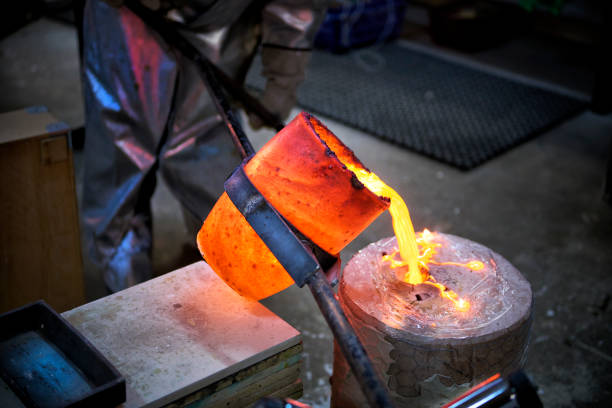business-services

September 15,2025 • 3 min read
Bronze Casting – A Timeless Solution for Strength and Elegance

Bronze casting is one of the oldest and most celebrated metalworking processes in history. From ancient statues and tools to modern industrial components, bronze has been valued for its strength, durability, and aesthetic appeal. Today, bronze casting remains a trusted method in foundries across the world, offering precision and flexibility for industries such as marine, construction, and decorative arts.
What is Bronze Casting?
Bronze casting is the process of pouring molten bronze—an alloy of copper and tin, sometimes with small additions of aluminum, manganese, or nickel—into a mold to create desired parts or products. Once cooled and solidified, the mold is removed, and the bronze object can be machined, polished, or used directly. Its versatility makes it suitable for both artistic and industrial applications.
Advantages of Bronze Casting
-
High Durability – Bronze components are resistant to wear and deformation, ensuring long-lasting performance.
-
Corrosion Resistance – Ideal for marine environments, bronze resists corrosion from saltwater, making it perfect for ship parts and outdoor fittings.
-
Excellent Machinability – Bronze can be easily shaped, drilled, or finished after casting.
-
Aesthetic Appeal – Its warm, reddish-brown tone makes bronze popular in sculptures, decorative pieces, and architecture.
-
Versatility – Suitable for both large-scale industrial use and fine artistic creations.
Common Methods of Bronze Casting
1. Sand Casting
Sand casting is widely used for large bronze parts such as gears, bearings, and machinery components. It’s cost-effective and ideal for producing strong, heavy-duty parts.
2. Investment Casting (Lost-Wax Casting)
This ancient technique uses wax models coated with ceramic shells to create detailed bronze pieces. Investment casting is popular for making statues, decorative items, and complex machine parts.
3. Centrifugal Casting
Perfect for cylindrical components like bushings, sleeves, and rings, centrifugal casting uses rotational force to distribute molten bronze evenly, ensuring density and strength.
4. Continuous Casting
This method produces long bars, rods, and sheets of bronze that can be cut and machined for multiple uses.
Applications of Bronze Casting
Bronze casting plays a vital role across industries due to its strength and corrosion resistance:
-
Marine Industry – Propellers, pumps, and valves that withstand saltwater exposure.
-
Construction – Architectural hardware, fittings, and ornamental bronze panels.
-
Industrial Machinery – Bearings, bushings, and gears that need durability.
-
Art and Sculpture – Bronze statues, memorials, and decorative works.
-
Electrical Components – Bronze’s conductive properties make it useful in electrical connectors and switches.
Why Choose Bronze Casting?
Compared to brass casting or cast iron casting, bronze offers better corrosion resistance and durability in marine environments. Its aesthetic appeal also makes it a top choice for architects, artists, and designers. Additionally, bronze alloys can be tailored for specific industrial requirements, ensuring flexibility in production.
csgex trusion Details
User Profile
- Full name
- csgex trusion
- Email address
- seocsgextrusion@gmail.com
- Join Date
- 2025-09-15
- State
- City
- Pincode
- Address
- Follow us on Facebook
- Follow us on Twitter
- Website Name
- Bio